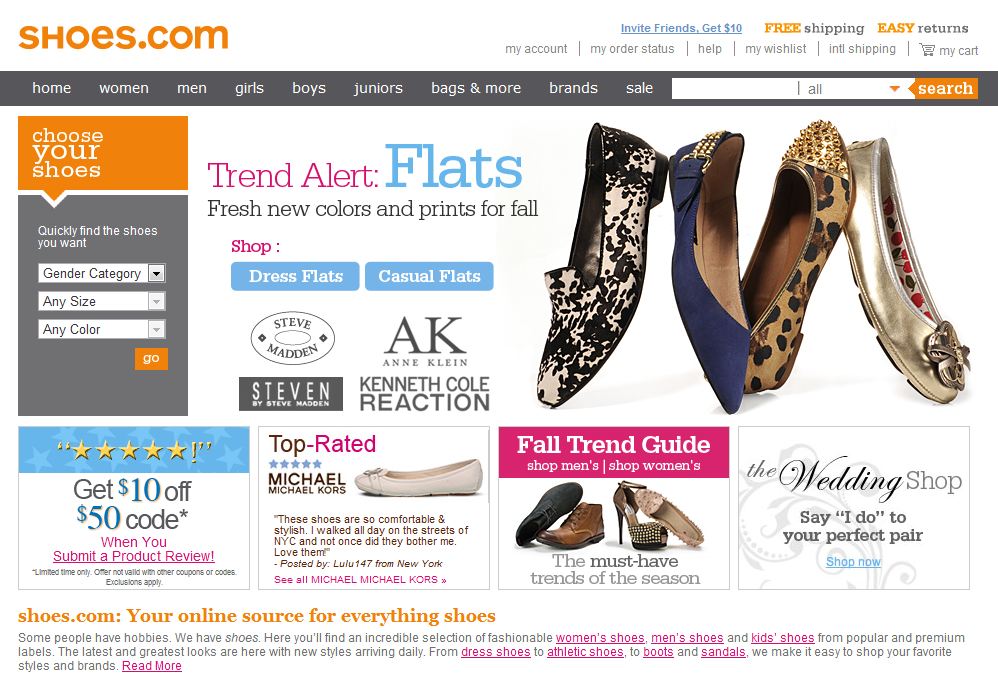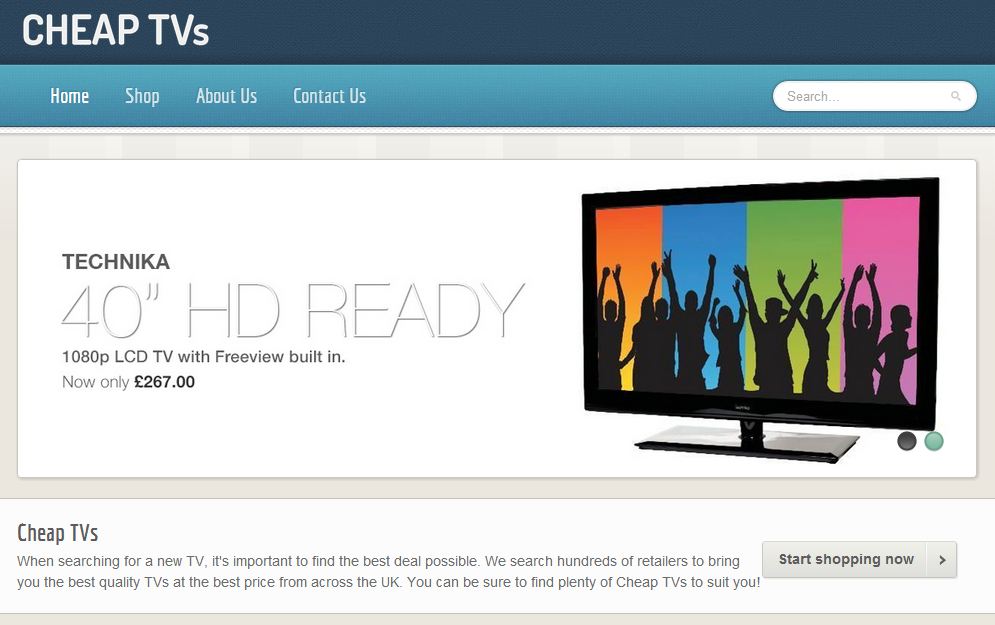Seven steps to the ideal domain
Can a domain name make or break a business?
While the $14million price tag for SEX.com may have become the stuff of legend, from a practical business standpoint, one assumes that somewhere along the line the numbers were very carefully crunched and that was thought to be a sound investment.
There’s no doubt, internet business is booming. Over 140 million domain names are currently in use and Google searches carried out daily are estimated at around three billion. The web is our best friend and with so many of us flocking to the search bar every time we have the slightest need, want, desire or inane query (‘If the moon was actually made of cheese, how long would it take the average American to eat it?’ - a genuine search) competition to appear before us and facilitate our wishes has become ferocious.
But in an effort to find an advantage which enables a business to stand out from the crowd as a floodlit beacon of commerce among its shadowed competitors, how important is having ‘the right’ domain name?
At the risk of standing on the fence, the answer may well be – ‘very, but not wholly and it ultimately depends on the nature of the business’. Put another way, an ‘ideal’ domain name for an individual business may well help that business find online customers, but it will certainly not the business make or break.
There will always be businesses which prosper when their domain is uh … ill considered. Looking for a pen? Try www.penisland.net – that’s Pen Island, a legitimate and prospering pen supplier from the US. There are obviously, though, some basic rules of good domain selection.
The ideal domain
1. The right suffix
If you are UK based, and plan on staying that way, a .co.uk suffix is a must. Google UK dominates the nations search engine market with a share ranging from 60% to 90% - depending on sources - and with Google.co.uk favouring UK-specific sites over others, it’s an immediate advantage.
If you’re a global trader, or are planning to be, having the .com suffix also has to be considered. In a global market, there may well be the immediate perception from potential foreign customers that a business lacks a global reach if it has a country specific suffix.
Get the Creative Bloq Newsletter
Daily design news, reviews, how-tos and more, as picked by the editors.
2. Keep it short
The easier a domain is to remember and spell correctly the better. You might want to reconsider if your business domain is spelt much like a Welsh village.

3. Keep it close to home
Wherever possible, register the company name as the main URL as this is what people will most commonly try who are looking for the business. Also it’s worth buying specific product domains in case these ever require their own standalone web presence. This advice may vary for different types of businesses who rely solely on search traffic and therefore utilise keywords – more on this below.
4. When you are your brand
For writers, consultants, photographers, etc where a personal reputation in a chosen industry is what draws customers, having a firstnamelastname domain is the holy grail. With almost 130,000 domains being registered daily, though, John Smith’s are going to struggle with this one so adding the industry also or, god forbid, hyphenating might have to suffice.
5. Mrspellings
A business domain which can easily be misspelled will act like a hose with a hole, constantly leaking traffic. Where possible, consider buying up common misspellings of the domain and pointing them to the main site.
6. Domain portfolio
It’s worth considering owning your domain portfolio (all suffixes) as comprehensively as possible. For the relatively minimal cost of domain registration, by ensuring that no one else is able to register another suffix to your domain, you close the most obvious door to any potential brand hijacking or trademark infringement.
7. Be mobile ready
The mobile web is booming and sooner or later it’s likely a business is going to want to optimise its website. Buy the .mobi version early, even if it’s shelved while a mobile site is created.
With the frantic competition for domains, the likelihood is that the most obvious direct domain matches for any new business will already have been registered. If this is the case, either the business name could itself be changed to match an available domain or other considerations such as branding, potential trademark infringement and making SEO as straightforward as possible, should come into play in the decision making.
Having said this, businesses selling directly to consumers may be advised to push harder to match domain to brand, even looking into the potential of buying from a current owner or at least placing a backorder request to cement future entitlement. This is simply because everyday consumers will spend less time trying to find them. With B2B, as there’s commonly a direct sales component, some disparity between brand and domain can be more acceptable.
Horses for courses – when brand is less important than rank
For businesses attracting most of their web traffic via word of mouth, the short, catchy, easily memorable domain is the key. However, for those looking to scoop the majority of their traffic from Google, different considerations may well take precedence.
I am a widget supplier with a widget factory in Manchester and my company is known as Widgeteroo. If I register Widgeteroo.co.uk, although I have a domain which directly matches my company name, I’m not necessarily going to be found easily by people searching Google for Widgets. The Google Keyword Tool can be used to clearly define how many people are searching for widgets and exactly the keywords they’re using when doing it. By spending some time analysing the keyword search trends of these potential widget customers, I may well find that by registering the domain Widgetsuppliermanchester.co.uk instead (or as well as widgeteroo.co.uk) I’m able to take advantage of a higher Google rank for this large body of existing traffic who are already clamouring for widgets.

Make or break?
While a domain may not be the defining factor in business success or failure, it certainly has a part to play. The nature of each different business and how it individually operates will ultimately dictate the significance and value of its online address.
Proper consideration, research and using best practice guides are the best tools to make the best decision. And when you do go about pinning down your market targeted, catchy, easy-to-spell, keyword laden, brand specific slice of internet real estate, unfortunately you’ll have to bear in mind that http://www.llanfairpwllgwyngyllgogerychwyrndrobwyll-llantysiliogogogoch.com/ - is already registered.

Thank you for reading 5 articles this month* Join now for unlimited access
Enjoy your first month for just £1 / $1 / €1
*Read 5 free articles per month without a subscription

Join now for unlimited access
Try first month for just £1 / $1 / €1
The Creative Bloq team is made up of a group of design fans, and has changed and evolved since Creative Bloq began back in 2012. The current website team consists of eight full-time members of staff: Editor Georgia Coggan, Deputy Editor Rosie Hilder, Ecommerce Editor Beren Neale, Senior News Editor Daniel Piper, Editor, Digital Art and 3D Ian Dean, Tech Reviews Editor Erlingur Einarsson, Ecommerce Writer Beth Nicholls and Staff Writer Natalie Fear, as well as a roster of freelancers from around the world. The ImagineFX magazine team also pitch in, ensuring that content from leading digital art publication ImagineFX is represented on Creative Bloq.
